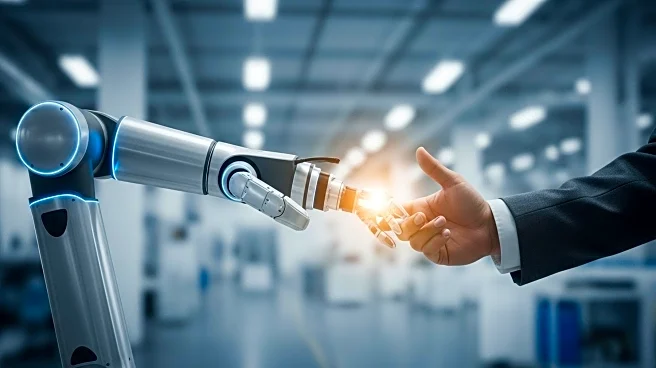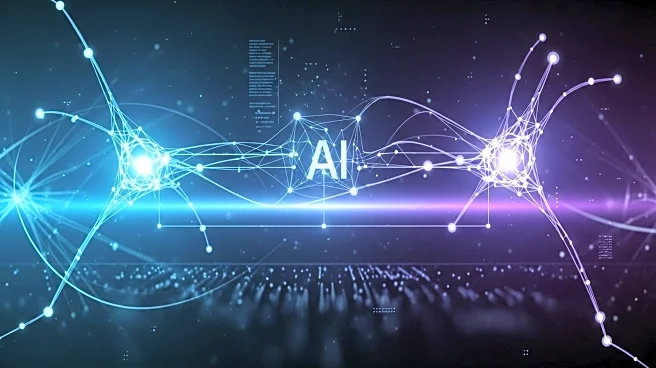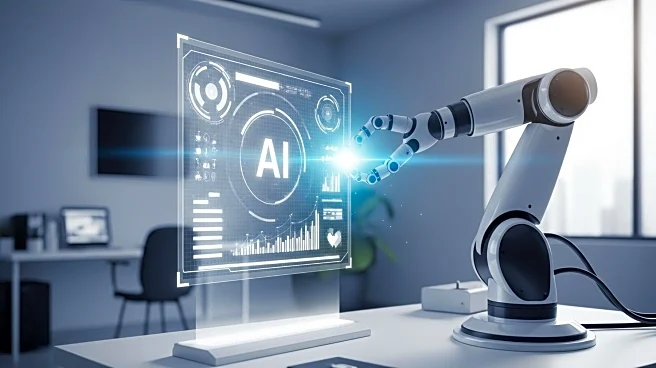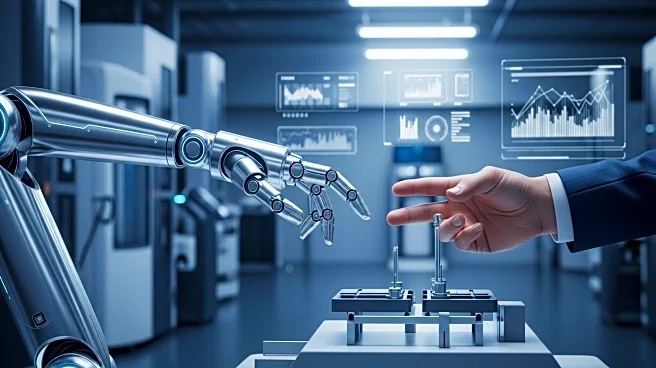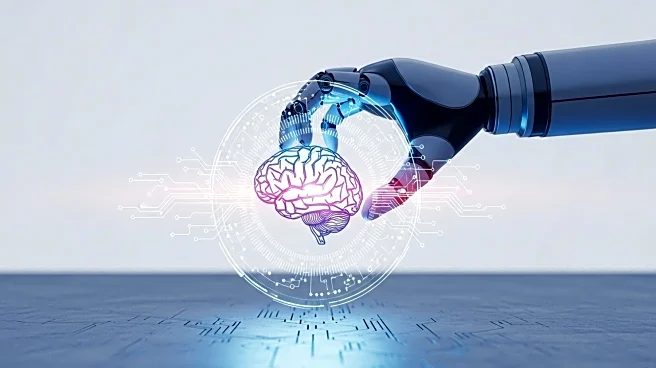What's Happening?
The rise of agentic AI, which refers to systems capable of independent action and complex problem-solving, is transforming the workforce landscape in the Philippines. According to a study by Salesforce, the adoption of agentic AI is projected to increase from 15% to 64% by 2027. This shift is prompting businesses to redeploy their workforce into new roles that focus on human-AI collaboration. The transformation is expected to create new job categories and redefine existing roles, emphasizing the need for skills in AI literacy, human judgment, and creativity. The Philippines' socioeconomic planning agency has highlighted the importance of AI literacy initiatives to complement workforce upskilling.
Why It's Important?
The integration of agentic AI into the workforce is significant as it offers a strategic opportunity for businesses to enhance productivity and innovation. By focusing on skills rather than job titles, companies can better identify talent and address skill gaps. This shift is crucial for maintaining competitiveness in a rapidly evolving digital economy. The transformation also underscores the importance of human skills such as leadership, adaptability, and relationship-building, which are essential for supervising AI agents. As AI takes over routine tasks, human roles will increasingly focus on strategic thinking and customer engagement, areas where people can add the most value.
What's Next?
Organizations need to proactively plan for workforce redeployment and invest in reskilling programs to prepare for the digital labor economy. Clear communication and effective change management are essential to address the awareness gap among employees regarding the impact of digital labor on their tasks. By building frameworks for trusted human-AI collaboration, businesses can lead in this new era of work. The focus on AI literacy and skills-based talent approaches will be critical in ensuring that the workforce is equipped to handle the challenges and opportunities presented by agentic AI.
Beyond the Headlines
The ethical, fair, and compliant use of AI at scale is a critical consideration as businesses integrate agentic AI into their operations. New roles focused on designing and managing AI systems will be essential to ensure that AI is used responsibly. The shift towards a skills-based approach also highlights the potential for AI and data analytics to uncover hidden talents and suggest new career paths for employees. This transformation not only redefines the workforce but also emphasizes the importance of human ingenuity in driving innovation alongside digital intelligence.
